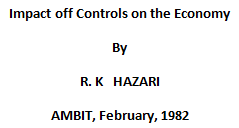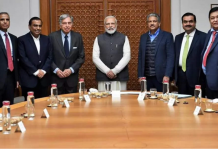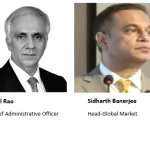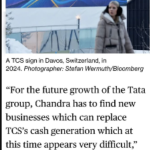When I was an undergraduate, we were taught in economic text books that controls were an essential feature of policy for economic planning and development The lesson was that if you don’t have price controls there are windfall profits generated in the economy and unless these are marked off for social benefits this will cause a lot of damage. In the bargain, therefore, true to Fabian philosophy which was then popular and that one believed and acted upon, one put down the prices of essential goods. so that the excess profit may not be generated and go to industry and whatever profit was generated was to be used at the discretion of public authorities.
We have learnt over a period of time that it is not entirely right in holding on to this point. Coming around to a more realistic view is that essential goods should generate enough profit for their own expansion of output and their own investment as well as to mop up any surplus generated in the economy and which can be mopped by a proper pricing policy for the essential goods.
This was demonstrated between 1974-1976 and as one of the minor authors of the policy at that time I can say that the policy of raising the prices of petroleum and certain other goods and the very firm policy towards potential railway strikers was a far more effective measure than the Emergency turned out to be for bringing down the price levels.
If nothing else, in our agriculture things have reached a point where even if Government tried it could not stop the process of further growth. I think the foundation has been well and truly laid. To begin with the beginning there has to be a Government in position which functions and which functions as a co-ordinating single entity all over the country. The reason why the Constitution creates a planned centre in India is to ensure unity of the country is safeguarded by adequately reinforced Government at various levels. Unfortunately, in the last few years from the centre to the districts, we have demoralized our working apparatus and therefore, every time one talks of policy it is suspicious both in conception and administration by what one may call in brief, the facts of life.
Fiscal Controls
Take the kind of controls that one envisages-that Mr. Jha mentioned-Fiscal Control. Obviously, one needs fiscal control. Among the great problems that we’ve had is that we’ve not had fiscal controls for quite some time. To be more precise-fiscal controls have been either absent or extremely inadequate since 1976 it started in the Emergency, continued under Janata and still continues. This is proved by the fact of the way the Government deficits have been out of hand and the way state overdrafts have been continuing with almost no control.
The saddest thing that one can talk about the country just now is that we need a condition from The International Monetary Fund (IMF) about the control of Government deficit and state overdraft rather than do it ourselves. Unless the Government deficits are controlled, no control anywhere down the line can work, because if money is being pumped into the economy the way it has been, you’re bound to have problems and trouble and corruption and undermining of the total way of life.
To come to the more positive side of fiscal expenditure, historically in the 19th Century, during British rule and the time we had planning in this country of a sort till we went on a planned holiday in 1962 and which has continued till this day, Government expenditure was an important source of orders and of assured orders in future for growth. When we talk of controls we are also thinking of positive controls and incentives It is not subsidies that bring about growth-subsidies only add to deficit and as has been rightly pointed out they do distort the distribution of real income and whom they benefit is a matter that can be debated by Industry-but surely one of the greatest ways of promoting growth would have been for Government expenditure to play a positive role in the development of industry, transport and so forth.
Unfortunately in the last 15 years there has not been that kind of incentive, long term incentive for industry to grow which is shown by the rate of growth, by the level of investment both in the public sector and the private sector. So its not merely a question of incentives to the private sector-the trend of investment in railways is a fundamental control in Public Utilities
There has been a near total stagnation in the real volume of railway investment for more than 15 years and remember that 2/3rds of the engineering orders come from the railways, the electricity boards, and major irrigation. In major irrigation there has been almost no fresh start for quite some time and almost no activity for the near future.
I would however, rather than talk about subsidies incentives and so forth only hope that the Railways and Electricity Boards function well. As of now, as many of us are aware the electricity boards don’t pay their bills All the incentives in the world and the controls down the line become nonsense if a large portion of industry is put out of commission in this manner.
Surely we do want a control over Electricity Boards that will not only allow for further investment in electricity and better position of electricity supplies but also payment of their bills. Surely this is another area where we do need some control. Whether it is control by Government or the Electricity Board or public control in some form or another, surely we do require controls to bring about a certain level of performance, which we’re not having and this again is not a matter of public and private sector alone. I think this concerns the people at large.
Monetary Control
Surely total money supply has to be kept in some kind of relationship with the growth of national income. There might be various views on the precise relationship and you cannot have year after year, a 20% growth in money supply when our national output has been increasing at something like 3%. There is bound to be a serious economic situation arising to allow this to continue.
You do not get best results out of monetary policy unless in addition to controls over total money supply which has again been largely absent for a number of years, since 1976, there has to be some redeployment of credit for which purpose credit was devised and there is the Tandon Committee norm and other norms – these are devices for proper reallocation of credit on the basis of some principles rather than leaving it entirely to the relations between bank management and their clients on a discretionary basis.
I am not in touch deliberately or otherwise with what happens in banking, nor would I like to comment on the state of affairs, but I do feel that when there was time for the proper implementation of the Tandon report, unfortunately a large element in the business world took it upon themselves to oppose the application of those norms first because there was inflation, then there was deflation and at no time was it ripe and proper for the implementation of the Tandon norms-when you don’t want application of norms, then you’re bound to have more discretionary control with all the phenomenon you are familiar with. However principles are adopted, principles are bound to have some difficulty, but surely it is better to have some principles than no principles at all.
One of the greatest difficulties that we have in our monetary policy is that our interest rates are not allowed to move freely. There has been a movement, an upward movement in the interest rates on advances to large plans, but in regard to the so called priority sector credit, there is neither enough control nor is there proper interest rate shown.
In the co-operative sector interest rates have been frozen for quite some time and it is not generally known that the last revision of interest rates did not apply to the co-operative sector-that sector which is quite large and not to be ignored, functions with almost no flexibility of interest rate consistent with overall monetary policy.
Also there has been no increase worth the name in the interest rates on Government security and this does affect the bank. Reference has been made to control over banks-there also we are going in for over-control over administration, over control over deployment of funds without regard to proper principles
It is quite unrealistic to expect that controls will be dismantled tomorrow morning according to your expectations-this can’t be done. But a movement in the direction can be made, so that one gets an idea in the direction things are moving. We should make a start with the abolition of capital issues control and the abolition of a few select controls.
It might interest you to know that when Mr. Gadgil had asked me as a member of the Planning Commission to make a study of industrial licencing, the idea grew out of the suggestion to study controls that the Textile Commissioner was supposed to implement. But somehow this was given up and I was asked to study general industrial licencing and when I had done about two months of work on textile control, it was very obvious that one could not lift a finger on the cotton mills without prior permission of the Textile Commissioner. I do not know what purpose has been solved by the whole variety of controls as of now.
Licencing
Those who read the report that I had done in the 1960s would remember that what I had done was to carry forward the application of the Raj Committee report on Steel Prices. All that I had done was to apply the ABC system of inventory control to investment control programme which industrial licencing had meant to be and I had suggested that many of the purposes for which licencing was put in originally, were being served by correct public investment or by correct re-direction of private investment
I think a very substantial deletion of industrial licencing is certainly called for. I had then suggested an exemption limit of Rs. 1 crore which has almost no relevance as of now because we can do nothing within a crore, both in terms of amount and in terms of foreign exchange requirements there should be a lot more freedom for industrial investment without having to apply for an industrial licence. The kind of objectives that were meant to be achieved can be and are being achieved by public investment which is a much larger proportion of the total than it used to be and through the policies being implemented in the direction of policies in backward areas,
I am not familiar now with the working of M.R.T.P. with which incidentally I have nothing to do, but my general impression would be that the first measure necessary is to transfer the administration of both M.R.T.P. and Company Law from the law ministry to a ministry responsible for economic development. I’m afraid that we have been having far too legalistic an interpretation of the provisions of these 2 crucial acts. The administration must go to a ministry positively concerned with bringing about industrial growth.
About the amendments of the law-look to what I have written on the subject in the 1960’s that laws and legal amendments could not bring in reduction in the concentration of economic power. It is quite obvious now that smuggling has reduced the concentration of economic power-perhaps more effectively than anything else-because now smugglers seem to be almost as important as the large business group.
Balanced Regional Development
But to be more serious-if one is thinking of balanced regional development, that in any case, cannot be achieved by location of industry. Balanced regional development comes about through greater attention to agricultural development where we are having a fair amount of progress which however does not get much attention. Even in Eastern U.P. and Bihar, there has been a fair amount of increase in minor irrigation and agricultural extension which has made for a lot of change. If we are thinking of balanced regional development let’s not put all the weight on industry. That depends on a host of’ other things for which industrial licencing or industrial incentives or industrial taxation are not the only answer.
Prices
This is an area which has caused a lot of trouble in the past and is continuing to cause trouble. In cement, all we need is on average Rs. 5/- a bag more, excise duty. That will take care of our payments of our bills, modernization and a moderate degree of expansion. I don’t think this is a very unreasonable demand as compared with Rs. 407-to Rs. 60/- that one hears as a premium for allocation.
The whole idea of controlling prices of essential goods needs a fresh philosophical examination. You may say that philosophy is neither here nor there, but remember that all ideas have their roots in a certain philosophy. No amount of facts is enough to controvert a philosophy-to controvert a philosophy you need a new philosophy. But do not say that we’re collecting facts to present them-facts never convinced anybody. So let us produce a new philosophy.
Mr. Jha rightly mentioned the question of dual pricing. However, let me make a slight amendment to what he was suggesting. Dual prices and dual markets do not necessarily go together, one can have one without the other However it is very clear as has happened in the case of steel, so in the other commodities in industry, there is an urgent need for a new philosophy of pricing as has happened in petroleum. In petroleum you are explicitly pro-vided that the price should have an element which will finance future growth. In steel it has been quite implicitly and explicitly accepted now-in the 1950’s the principle was quite different.
We have to accept a philosophy that growth has to come out of a surplus generated out of current prices. It cannot be graphed on the general resources of the community. If that is so then it follows a number of things on price control have grown and a number of other controls have come about that could certainly be deleted and many of them can be modified to a large extent.
Let me repeat this as the last statement that I would make, as an ex-academician I am stressing the power of ideas more than is realistic, but I think that it is still valid-please do not go about collecting facts to controvert present policy. That you have to do only when you’re arguing before a commission, but if you’re arguing on a national plane, on a political plane, please produce a new philosophy. Unfortunately, all over the world old philosophies and the existing philosophies are under attack, whether they are Capitalist, Socialist, Communist, Maoist-they are all under attack. Therefore, the task of producing a philosophy is not easy, but it has to be undertaken. Without that no amount of effort is going to produce results.














